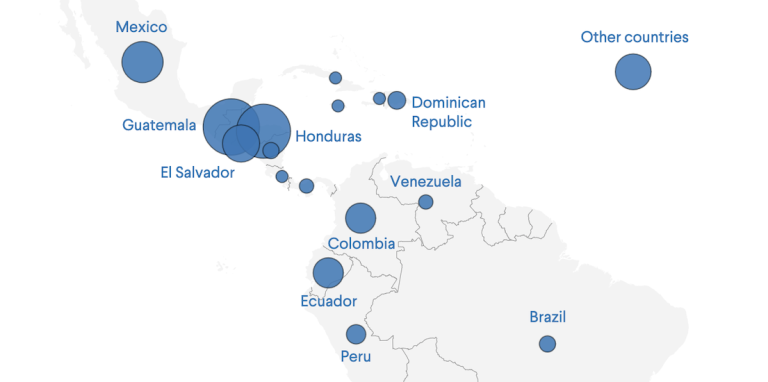
Deportees Sent to Third Countries, Not Always Home Nations
Washington, D.C. – As the Trump administration intensifies its immigration enforcement, a growing number of migrants are being deported not to their countries of origin, but to third countries across Latin America and the Caribbean. This shift has sparked alarm among human rights advocates, legal experts, and the migrants themselves, who face uncertain—and sometimes dangerous—futures upon arrival.
A New Deportation Landscape
In March, more than half of all U.S. deportations involved citizens of Central America’s Northern Triangle: El Salvador, Guatemala, and Honduras. These countries have seen millions flee in recent years due to worsening poverty, violence, and instability.
But the Trump administration has expanded deportation destinations,
sending migrants to countries such as Colombia, Jamaica,
Mexico, and even as far as Brazil, China, India, and Panama.
Venezuela, after a period of refusing flights, has also resumed accepting deportees following U.S. diplomatic pressure.
The administration has struck deals with several nations to accept not only their own citizens but also migrants of other nationalities. In February, Secretary of State Marco Rubio secured agreements with El Salvador and Guatemala to take in deportees from various countries. Similar arrangements exist with Colombia, Costa Rica, Honduras, Mexico, and others.
Guantánamo Bay and Maximum Security Prisons

Some migrants, particularly Venezuelans, have been routed through the U.S. naval base at Guantánamo Bay, Cuba—a facility infamous for detaining suspected terrorists after 9/11.
In late March, a new group of migrants was sent there to await deportation. Others have been transferred to El Salvador’s mega prison, a maximum-security facility used by President Nayib Bukele in his crackdown on gangs, raising serious concerns about detainee treatment.
Recipient Countries Under Pressure
Many recipient countries are ill-equipped to handle the influx of deportees. Some, like Colombia and Panama, have offered food, water, and medical care, and allowed migrants to apply for asylum with U.N. assistance.
Yet, the pressure to accept deportees often comes with threats of economic retaliation. In January, Colombia initially blocked U.S. deportation flights but reversed course after Trump threatened tariffs on Colombian imports.
Legal and Humanitarian Pushback
The policy has faced mounting legal challenges. Rights groups and legal experts argue that deporting migrants to third countries without due process puts them at grave risk.
In a landmark decision, a federal judge blocked the administration from sending noncitizens to nations other than their origin without providing a clear, documented opportunity to object. Judge Brian Murphy wrote that the U.S. “may not send a deportable alien to a country not of their origin…without providing that person any opportunity to tell the deporting authorities that they face grave danger or death because of such a deportation.”
This injunction, which remains in effect, underscores concerns that the administration’s approach lacks transparency and adequate legal safeguards. Several lawsuits have been filed, and in one case, the White House admitted to an “administrative error” in transferring a Maryland man to prison in El Salvador, later stating it could not ensure his return.
A Region in Crisis
The root causes driving migration from the Northern Triangle—poverty, violence, and instability—remain unaddressed. Despite U.S. efforts to curb migration through development aid and tough-on-crime policies, millions continue to flee, only to face the prospect of deportation to unfamiliar and sometimes hostile environments.
Looking Ahead
As legal battles continue and deportation flights persist, the fate of thousands of migrants hangs in the balance. The administration is reportedly seeking similar agreements with countries in Africa, Asia, and Europe, raising the possibility of even broader use of third-country deportations. For now, the policy’s future—and its human cost—remain uncertain.
Migrants Deported to Third Nations Amid Human Rights Worries (April 19, 2025)